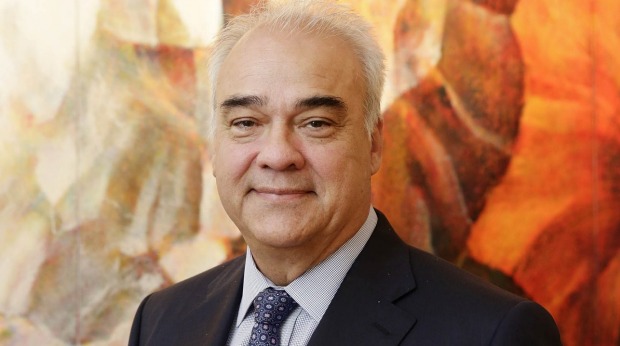
Primary Health Care boss Peter Gregg has already got his eyes on a site, and is doing the work, for another centre. Photo: Jessica Hromas
Primary Health Care will next week open its new $35 million imaging centre in Melbourne, in what could be the first of a number of centres rolled out in major cities across the country.
Bridge Road Imaging, which sits opposite Epworth Hospital in Richmond, will offer patients access to the only ultra-low radiation dose CT scanner in Victoria, as well as other scanning and imaging equipment such as MRIs and PET scans, alongside more standard offerings including ultrasounds and x-rays.
“This is a wonderful opportunity and a step up in what Primary has done,” the company’s chief executive Peter Gregg said.
“We have imaging centres within our medical centres. What we are talking about here is a much larger [imaging] facility that can stand by itself, and it is the first time we have done it.”
Mr Gregg said he has his eyes on another site already and is doing the work on it “as we speak”.
“It is a model we want to roll out across the network,” he said.
Two years to pay back
He expects Bridge Road will take up to two years to pay back the initial investment, but said returns will be above the cost of capital and he “wouldn’t be talking about rolling it out if it didn’t generate economic value for shareholders”.
Primary recently received a $130 million refund from the Australian Tax Office and analysts expect the company will divest up to $275 million of non-core assets over the medium term.
Those assets include technology division HCN, its 19.6 per cent stake in Vision Eye Institute, health insurance business Transport Health and a development site at Barangaroo in Sydney.
Mr Gregg said that divestments could help fund the roll-out of new imaging centres but he declined to comment on any potential sales, including his intention with the Vision Eye stake.
Vision is currently subject to a takeover bid form Pulse Health.
He said another way to fund the roll-out would be to follow Primary’s previous model of selling and leasing its sites to free up capital. One option being worked on is that the properties could sit in a property trust.
Known for introducing model to Australia
The $2.6 billion ASX-listed Primary, founded by former GP Ed Bateman, is known for bringing the bulk-billed, extended service hours, medical centre model to Australia.
Primary’s 71 medical centres host more than 7 million GP consults every year and its diagnostic imaging business conducts approximately 2.5 million examinations every year.
The Bridge Road site will officially open next Thursday and will offer bulk-billing on its MRIs – which requires a special licence – and on its high-resolution, low-radiation CT scanner, which delivers 90 per cent less radiation when used.
Primary loses its lease at the neighbouring Epworth Hospital in September but the government has allowed the company to move its MRI licences to the new imaging centre.
“Looking forward, we are building scale into the infrastructure; we are using more than we did in the past,” Mr Gregg said.
“We see concentrations of high-quality, high-value equipment and high-quality operators being a good model.”
Outpatient pool a target
Approximately 90 per cent of the patients Primary services at Epworth Hospital are outpatients and it is this pool of outpatients the company is targeting.
“That outpatient pool is where we will grow the [patient] volume,” Mr Gregg said.
Bridge Road Imaging will have four radiologists on site. By comparison, Primary’s Brookvale medical centre, which services some 1000 patients daily, has one radiologist.
Primary’s Victorian healthcare imaging services manager Dean Lewsam said that the next phase of development at the site will be to add 16 specialist consulting suites that could house up to 40 specialists.
These specialists will not necessarily be contracted by Primary Health Care. It is hoped the concentration of specialists will drive referral volume.
“We’ve not held back on investment in technology. We have leading technology in all disciplines of radiology. It will make it more accessible to the community. The majority of services will be bulk billed,” Mr Lewsam said.
